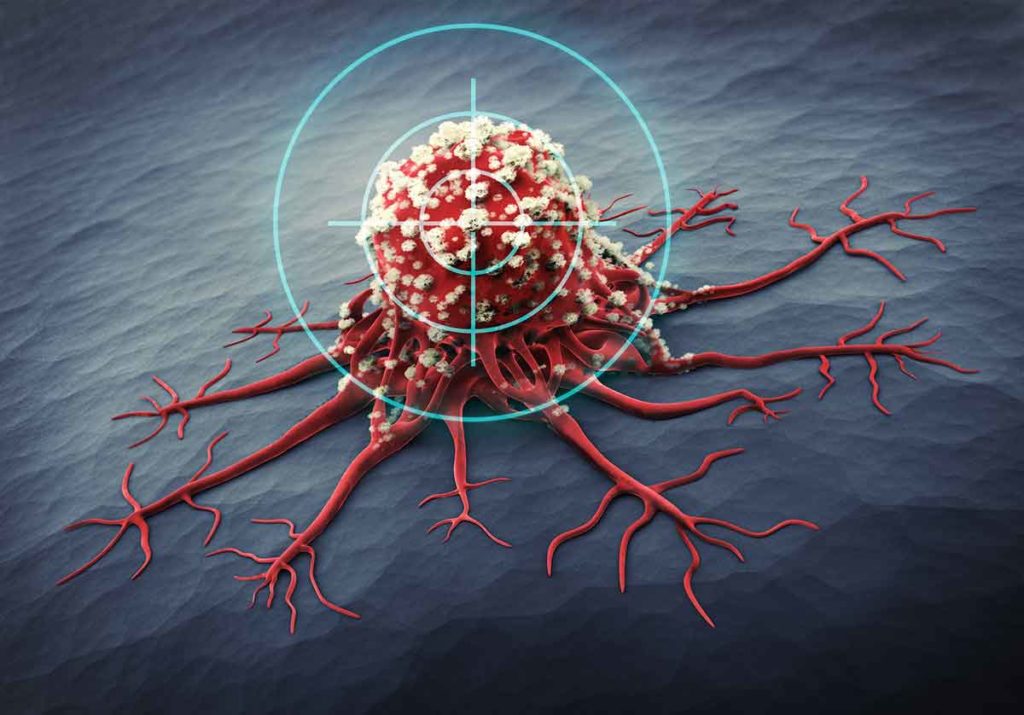Study will test effectiveness of two antifungal medications in blocking high-grade glioma tumor cell growth
Could two medications most often used to treat fungal infections help block the growth of high-grade glioma tumor cells? That’s the question researchers at Penn State Health and Penn State College of Medicine will explore in a new Phase 0 drug repurposing trial expected to start in late winter 2022.
The trial will test the efficacy of ketoconazole (KCZ) and Posaconazole (PCZ) in blocking hexokinase 2 (HK2)-regulated pathways. HK2 is an enzyme shown to be essential in promoting the growth of high-grade gliomas.
“These tumors are very aggressive,” said study principal investigator Dr. Alireza Mansouri, a neurosurgeon and neuro-oncologist with Penn State Health Milton S. Hershey Medical Center and Penn State Health Holy Spirit Medical Center. “Patient survival rates are just 14 months, and there is no cure.”
The highly infiltrative and heterogenous nature of high-grade gliomas makes them difficult to treat. “In addition, a lot of existing chemotherapy and immunotherapy treatments don’t cross the blood-brain barrier, making them ineffective against high-grade gliomas,” Mansouri said. “That’s why we desperately need treatments that specifically target the metabolism of tumor cells.”
The foundation of the drug repurposing study began with Mansouri’s mentor, Dr. Gelareh Zadeh, professor, Division of Neurosurgery at the University of Toronto and Dan Family Chair of neurosurgery at Toronto Western Hospital.
“Her lab found the link between HK2 and the metabolism of high-grade gliomas,” Mansouri said.
“In the lab, we’ve shown that high-grade glioma tumors in mice without HK2 are not as aggressive,” Mansouri said. Further, in mice implanted with human high-grade glioma tumor cells, both KCZ and PCZ blocked tumor energy production and growth while increasing survival. It is now essential to show that these drugs can cross the blood-brain barrier and recapitulate in humans the effect on tumor cells that we have seen in mice.

Researchers will test the effectiveness of KCZ and PCZ in blocking the enzyme that fuels high-grade glioma growth.
Over the next year, researchers hope to enroll 15 patients in the study. Five will receive KCZ, five will receive PCZ, and five control patients will receive neither. The drugs will be administered orally a few days before their scheduled surgery. The neurosurgeons at Hershey Medical Center will then remove the tumor to assess how much drug got in. They will also use catheters implanted during surgery to measure drug concentration over the next 24 hours, along with metabolites associated with the tumor’s energy production.
“This data will answer the crucial questions of whether the drugs can penetrate the blood-brain barrier, while also giving us the ability to plan the proper dosage and determine how often either medication may need to be given in the future,” Mansouri said.
If the trial is successful, it could open the door to future studies testing whether higher doses of KCZ or PCZ could achieve a maximum effect. Eventually, the research could lead to further testing among larger groups of high-grade glioma patients to determine whether either drug could increase patient survival.
“If we can show improved survival by specifically targeting tumor metabolism, there is promise of ultimately finding a more effective method of managing this disease,” Mansouri said.
Co-investigators in the study from the Milton S. Hershey Medical Center and Penn State College of Medicine include James Connor, PhD, distinguished professor of neurosurgery; Dr. Brad Zacharia, associate professor, Department of Neurosurgery; and Dr. Michael Glantz, professor, Department of Neurosurgery.
In addition to pioneering leading-edge research, the team at Hershey Medical Center and Penn State Cancer Institute provide care for approximately 500 brain tumor patients annually, including about 50 to 100 patients with glioblastomas.

Seyed A. Mansouri, MD
Assistant Professor, Neuro-oncology Surgeon, Department of Neurosurgery, Penn State Health Milton S. Hershey Medical Center
Phone: 717-763-2559
Email: afm6068@psu.edu
Fellowship: Neuro-Oncology, University Health Network-Toronto Western Hospital/University of Toronto, Toronto, Ontario, Canada; Neuro-Oncology, National Institutes of Health, Bethesda, Md.
Residency: Neurosurgery University of Toronto, Toronto
Medical School: University of Toronto Faculty of Medicine, Toronto
Connect with Seyed A. Mansouri, MD, on Doximity
